220 Views
Sulphur
Sulphur – the great cleanser
Description
Sulphur is a non-metallic element present in every cell of animals and plants.
Essential to man it makes up approximately 25% of human body weight. There is more sulphur than salt in the body and the highest concentrations of sulphur are found in the joints, hair, skin and nails.
Called natures beauty mineral because it keeps hair shiny and glossy, smooth and keeps the complexion clear and youthful. Also known as the bodies great cleanser.
Function
Sulphur has an important relationship with protein
It is contained in the amino acids methionine, cysteine, cysteine and taurine.
Necessary for collagen synthesis
Prevalent in keratin – the tough protein substance in hair and skin
Found in insulin – the hormone that regulates CHO (carbohydrate) metabolism
Occurs in CHO heparin – an anti-coagulate found in the liver
Works with biotin, thiamine, lipoic acid and pantothenic acid for metabolism and strong nerve health
Plays a part in tissue respiration
Works with the liver to secrete bile
Helps maintain overall body balance
Deficiency Effects
Vegetarians may become deficient if they don’t eat eggs.
Without adequate sulphur, glucose metabolism becomes defective and muscle and fat cells are damaged as the result of becoming glucose intolerant. This is how sulphur deficiency can lead to all manner of skeletal and muscle disorders with corresponding pain and inflammation.
This impaired glucose metabolism resulting from insufficient sulphur is also implicated as a factor in obesity and the dangerous condition known as Metabolic Syndrome because one way the body compensates for defective glucose metabolism is by gaining weight.
When sulphur deficiency occurs within the context of a low-fat diet, the problem becomes more serious as the additional sources of glucose present in a low-fat diet in the form of carbohydrates are converted to fat and even worse, released into the bloodstream as triglycerides as fuel for the damaged and inflamed muscle cells.
Dosage and Toxicity
Our body’s need 850mg of sulphur per day. It is assumed that adequate intake of protein meets the daily requirement of sulphur. Excess sulphur is not stored in the body and excreted via urine and faeces.
Medicinal and therapeutic Uses
Arthritis – levels of cysteine are found to be low in arthritic patients
Worms, dermatitis, eczema, psoriasis, skin disorders
Required for insulin production
Detoxifies at the cellular level and relieves pain
Builds flexible cells in arteries and veins
Assisted by the B vitamins, thiamine and biotin sulphur is essential for converting carbohydrates into energy
Good Food Sources
Eggs, meat, fish, cheese, milk, calendula, celery, fennel, horseradish, garlic, dandelions, nettles, sage, shepherds purse, plantain, parsley, cress, onions, rocket, peppers, beans, dried fruit, cabbage family. Strong smelling foods tend to contain sulphur compounds.
Sulphur is deficient in many soils and plant foods may vary in content.

